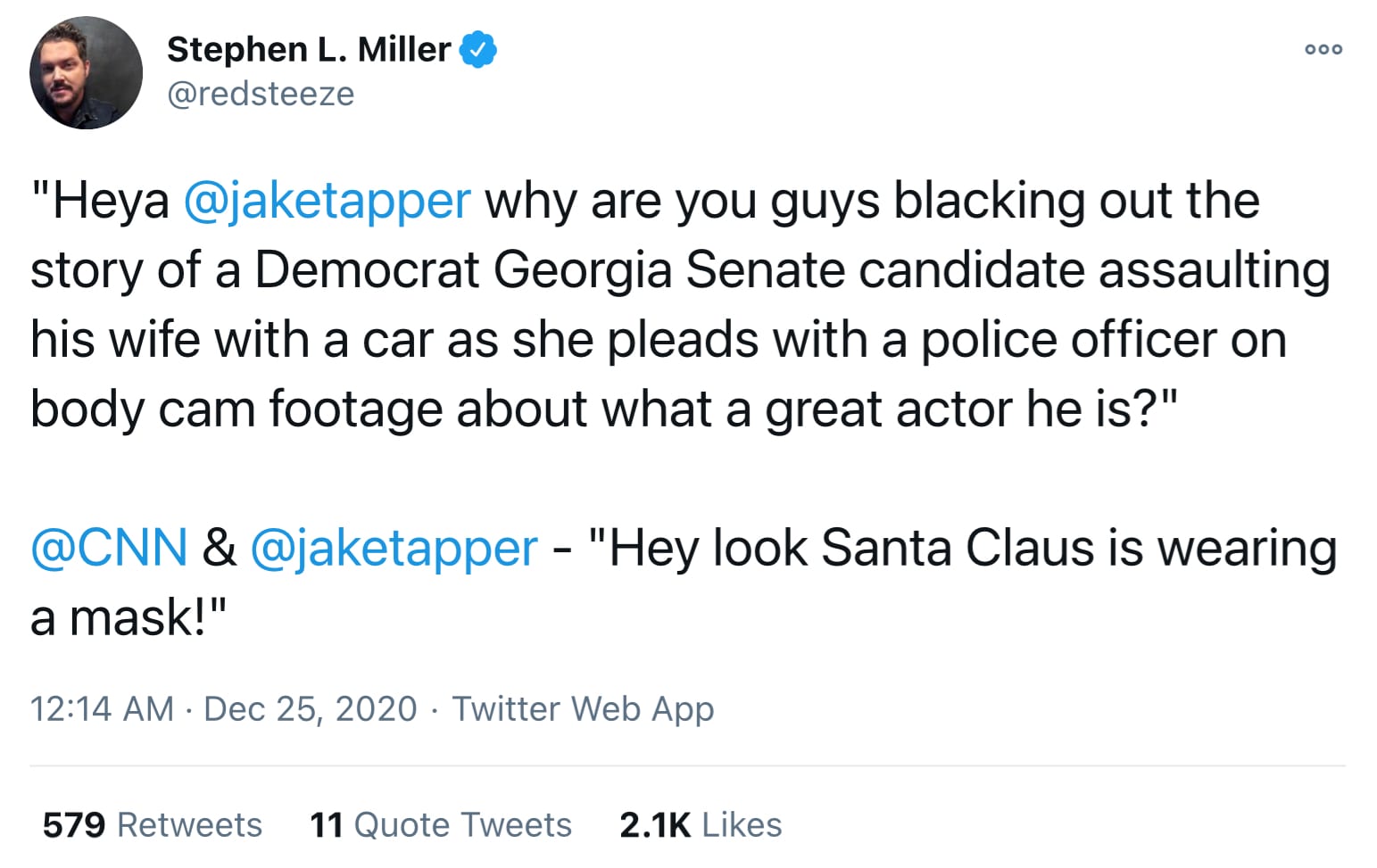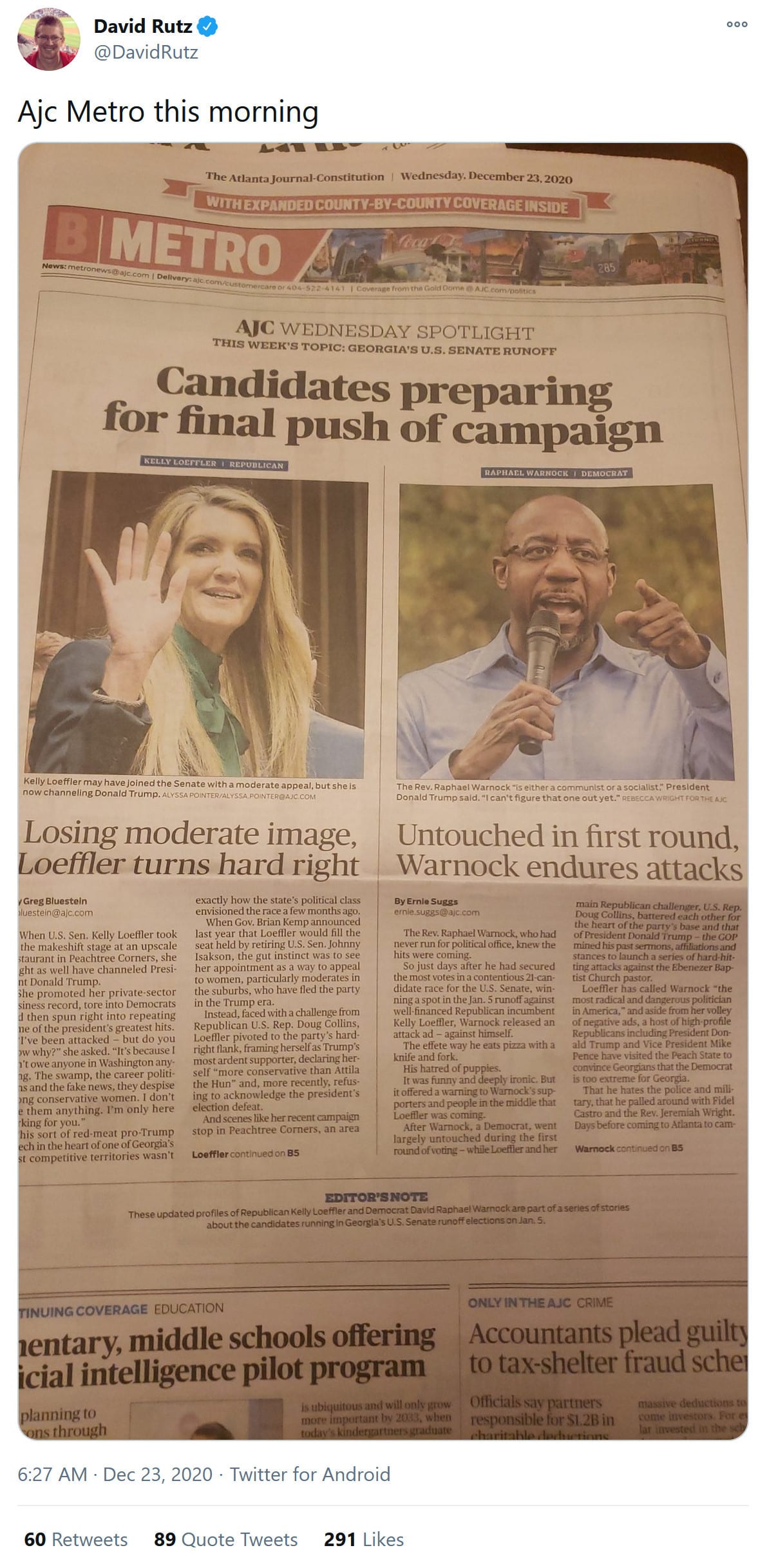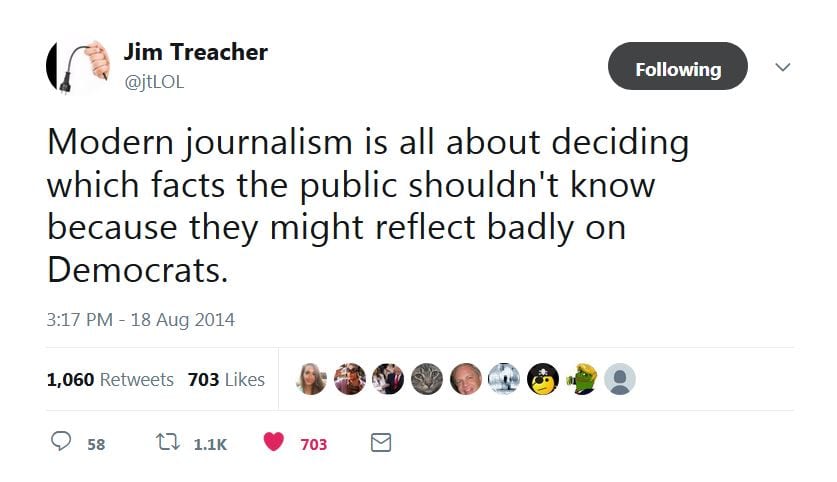LEFTY CULTURAL INFRASTRUCTURE CRUMBLING FROM LEFTY LOCKDOWNS: A ‘Great Cultural Depression’ Looms for Legions of Unemployed Performers: With theaters and concert halls shuttered, unemployment in the arts has cut deeper than in restaurants and other hard-hit industries.
Archive for 2020
December 27, 2020
ASKING THE IMPORTANT, ALBEIT BELATED QUESTIONS: Why is the day after Christmas called Boxing Day?
ROGER KIMBALL: Constant’s Liberty, Ancient and Modern.
This is just scratching the surface of Constant’s essay. What he elaborates is a melancholy dialectic of liberty in which nostalgic efforts to resuscitate ancient forms of liberty on the stage of modern life yield tyranny. And yet distinctively modern forms of liberty depend in the end on a ground of genuine political liberty if they are to thrive. Hence the paradox:
Individual liberty, I repeat, is the true modern liberty. Political liberty is its guarantee, consequently political liberty is indispensable. But to ask the peoples of our day to sacrifice, like those of the past, the whole of their individual liberty to political liberty, is the surest means of detaching them from the former and, once this result has been achieved, it would be only too easy to deprive them of the latter.
Modern totalitarians, those of a soft as well as those of a harder disposition, have understood and exploited this paradox. Hence Constant’s prescient warning. Some people, he says, noting that we moderns cannot resurrect ancient forms of liberty without abolishing our quotidian freedoms, “conclude that we are destined to be slaves. They would like to reconstitute the new social state with a small number of elements which, they say, are alone appropriate to the situation of the world today.”
And what are these elements? Constant might have been writing in the opening decades of the 21st century rather than the opening decades of the 19th. Consider: “These elements are prejudices to frighten men, egoism to corrupt them, frivolity to stupefy them, gross pleasures to degrade them, despotism to lead them; and, indispensably, constructive knowledge and exact sciences to serve despotism the more adroitly.”
Read the whole thing
DISPATCHES FROM THE INTERSECTION OF THE EDUCATION APOCALYPSE AND THE NEWSPEAK DICTIONARY: Harvard calls women ‘birthing people’ because ‘not all who give birth’ are women.
RUMBLES OF REVOLT: Restaurant Owner BLOCKADES Health Inspector’s Car in Protest.
THERE’S NOTHING YOU CAN DO THAT CAN’T BE DONE. NOTHING YOU CAN SING THAT CAN’T BE SUNG. NOTHING YOU CAN SAY, BUT YOU CAN LEARN HOW TO PLAY THE GAME. IT’S EASY: ‘Dem guru stiffed us:’ Marianne Williamson sued by campaign vendor over unpaid debts.
PUNCH BACK TWICE AS HARD: Family sues school that won’t let student out of class promoting anti-white racism.
“A TINY BIT OF GOOD NEWS IN A DISMAL YEAR:” “Political speech is under attack these days from Beijing to Berkeley, so we’ll take victories where we can get them. One arrived Tuesday when the University of Texas at Austin agreed to disband its PC police and end policies that suppress speech on campus.”
COLLUSION: Columbia president advocates softer China approach amid questions over foreign gifts. “Columbia University’s president asked Joe Biden to reduce surveillance of foreign nationals, specifically Chinese nationals. The Ivy League president’s statement comes amid reports that the school failed to disclose more than $1 million from the China for its Confucius Institute, which the school denies.”
BYLINES OF BRUTALITY: Arkansas far-left journalist among four charged in BLM firebombings of police vehicles: report.
(Classical reference in headline.)
ANOTHER TRUMP TRIUMPH: They did it: Kushner, Pompeo, Mnuchin awarded for Middle East peace successes.
INDIAN OCEAN, OFF SOMALIA: A USMC F-35B lands on the amphibious assault ship USS Makin Island. According to the caption, the naval task force is covering the withdrawal from Somalia. Photo taken December 18.
DISPATCHES FROM THE EDUCATION APOCALYPSE: Future Biden Education Secretary Oversaw Creation of Critical Theory Class for High Schoolers.
THIS IS CNN:

It’s a bombshell allegation, and the Atlanta Journal-Constitution is all over it — with a pillow, as Iowahawk would say:

Evergreen:


CALLING OUT ANTI-SEMITISM: Pro-Israel Group Torches Warnock in New Ad.
WHAT COULD GO WRONG? How the Centers for Disease Control Went Woke.
COLLUSION: Ossoff’s China ties compound Democratic Party’s Hunter Biden, Swalwell woes.
Democratic Senate candidate Jon Ossoff is fighting Republican attacks over his business ties to China as the Georgia runoff nears, but the Hunter Biden and Eric Swalwell scandals involving Beijing aren’t making it any easier.
Mr. Biden, the president-elect’s son, and California Democratic Rep. Swalwell have kept stories about Beijing’s influence in the news, lending oxygen to Republicans hammering Mr. Ossoff‘s link to a Hong Kong conglomerate owned in part by the Chinese communist government.
Mr. Ossoff, a Democrat challenging Republican Sen. David Perdue in the Jan. 5 runoff, slipped a few points in the Dec. 18 poll by the Trafalgar Group, which pollster Robert Cahaly attributed primarily to the China issue. . . .
Alarm over Chinese influence soared starting in mid-October with new reports of Hunter Biden’s lucrative business deals with Beijing, followed by an Axios investigation earlier this month into a suspected Chinese spy who became chummy with some California Democrats, including Mr. Swalwell.
The Perdue campaign connected the dots in a digital ad with news clips of critics, including Sen. Marsha Blackburn, Tennessee Republican, raising concerns about Mr. Ossoff’s company receiving payments from PCCW Media, which is owned in part by China Unicom, a state-run telecommunications provider.
China’s tendrils are everywhere in the Democratic Party.
GREAT MOMENTS IN GASLIGHTING: Kamala Harris talks about childhood Kwanzaa celebrations that probably never happened.
She’s already perfectly fitting in with the Biden administration:
THE YEAR THE RULING CLASS GOT WOKE: Identity politics has become the new secular religion. We need more heretics.
For me, the defining image of 2020 was also the funniest: that of Democratic lawmakers in the US taking the knee, in solidarity with the Black Lives Matter movement, draped in Ghanaian kente cloth.
Watching thoroughly establishment politicians, House speaker Nancy Pelosi and Senate minority leader Chuck Schumer to the fore, literally kneeling before the new woke politics was striking. It provoked so many questions, not least if Pelosi and Schumer (80 and 70 respectively) would be able to rise again unassisted.
But this absurd attempt at virtue-signalling – which provoked mockery rather than plaudits, even among those it was meant to impress – made one thing clear: that wokeness is the new orthodoxy, and the old elites know this.
Divisive, identitarian ideas around race, gender and sexuality have of course been gaining ground in elite circles for some time. The idea that Western societies are not simply affected by bigotry, but defined by it and built on it, had been gaining ground in academia for decades.* * * * * * * *
What was perhaps more unexpected* was the almost total embrace of Black Lives Matter, the banner under which this movement marched, by the capitalist class. Corporate giants lent their support to the protests. Ben & Jerry’s ice cream pledged to ‘dismantle white supremacy’. And the CEO of JPMorgan Chase took the knee in front of a giant open bank vault.
From the article we linked to yesterday on Christopher Lasch:
Taken as a whole, Lasch’s body of writing offers an account of the limitations of the American political panorama of his era. Conservatism, he suggests, tends to provide de facto ideological cover for the economic developments that have eroded the social values it claims to promote. Liberalism, for its part, has overseen the rise of a state bureaucratic apparatus that promises to compensate for the effects of this erosion. However, in the process, it further weakens the autonomy of individuals, families, and communities, and enables the substitution of democracy with technocratic elite rule. While the New Left of the 1960s rebelled against the expansion of corporate and bureaucratic power, the end result of its revolt was not a reassertion of the local and the communal, but the infusion of those structures with a new therapeutic sensibility.
To borrow the headline of an article we linked to last month: You Keep Using The Word “Liberal:” it doesn’t mean what you think it means.
Related: The Religion to Replace All Other Religions.
* It shouldn’t be that unexpected, considering how easily corporate giants embraced another gnostic religion, radical environmentalism, a few decades ago.
